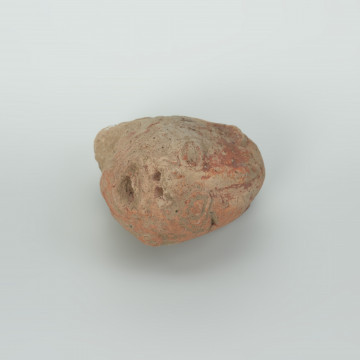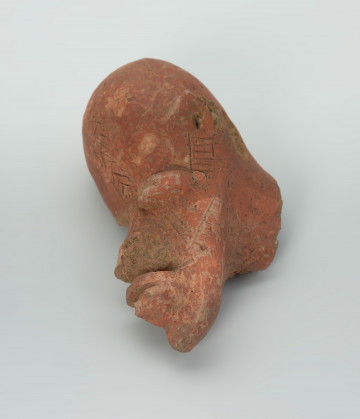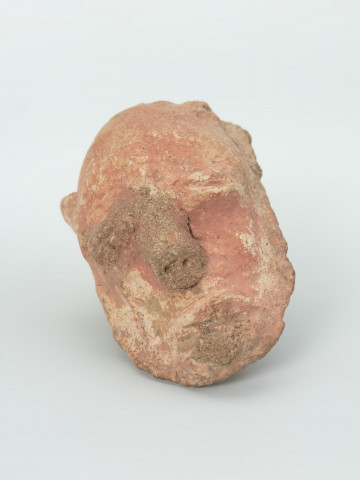
Head
około 1201 — 1985
National Museum in Szczecin
Part of the collection: Terracotta from the Niger
The terracotta sculpture of a cylindrical shape was marked with facial features and numerous indentations forming a zigzag pattern. Tests carried out using the thermoluminescence method at the Luminescence Dating Laboratory of the Institute of Physics of the Silesian University of Technology concluded that it was made over 500 years ago, in 1480 to be precise. The sculpture comes from the ancient city of Djenne-Jeno (also called old Djenne or Djenne, Djenne-Djenno, Jenne-Jeno, or old Jeno), located near the medieval Malian city of Djenne. Djenne-Jeno is considered one of the oldest cities in sub-Saharan Africa, having been founded in the 3rd century BC. Its heyday was between the 6th and 9th centuries when up to 20,000 people inhabited it. It primarily owes its location on the trade route between the Sahara and the lands south of the Niger River. One of the most intriguing archaeological discoveries from Djenne-Jeno is terracotta sculptures depicting human figures. The purpose of their creation is unclear, but it seems that they originally had religious and ceremonial functions. They were probably placed on family home altars dedicated to ancestors. They were most likely banned after the Moroccan invasion of 1591. Djenne-Jeno was abandoned for unexplained reasons. Some scholars believe that this was due to the advent of Islam, but it seems that the reason for the abandonment of old Djenne may have been the ever-expanding population or the relocation of the trade route to neighbouring medieval Djenne.
Katarzyna Findlik-Gawron
Author / creator
Dimensions
cały obiekt: height: 11,5 cm, width: 5,1 cm
Object type
sculpture
Creation time / dating
Creation / finding place
Identification number
Location / status

około 1201 — 1985
National Museum in Szczecin

około 1201 — 1985
National Museum in Szczecin

około 1201 — 1985
National Museum in Szczecin
DISCOVER this TOPIC
Museum of King Jan III's Palace at Wilanów
DISCOVER this PATH
Educational path